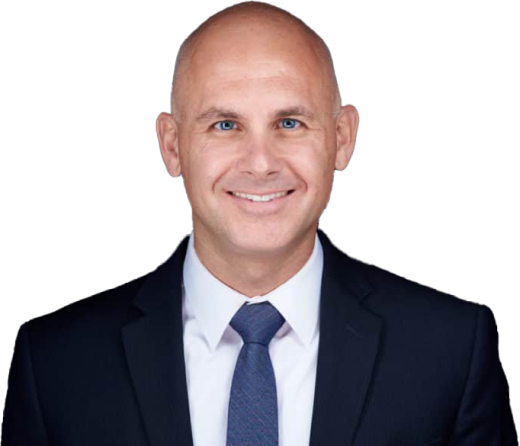
Attorney-client privilege is an important concept when you are involved in a legal matter. When you are dealing with a legal issue, you want to know that what you discuss with your lawyer will stay private. Attorney-client privilege gives you the confidence to know you can discuss your situation with your lawyer without fear that the information will be used against you.
It is important that you trust your lawyer and know your information is safe. If you have a personal injury claim, reach out to a Las Vegas personal injury lawyer at H&P Law. We will treat the information you share with us with the utmost confidentiality.
Understanding Attorney-Client Privilege
To know how attorney-client privilege can affect your case, you must first understand the concept. The attorney-client privilege protects the confidential communications between you and your lawyer. It protects written correspondence, verbal discussions, and other forms of communication.
Attorney-client privilege belongs to you as the client. In other words, you have the authority to invoke or waive it. Your attorney does not.
Attorney-client privilege is not absolute. There are exceptions that may warrant disclosure of private information. There is also certain information that is not protected by attorney-client privilege.
Requirements for Attorney-Client Privilege
To be protected by attorney-client privilege, you must have an attorney-client relationship. There must be an established relationship between you and your lawyer. Simply consulting with an attorney does not establish that relationship.
If you are unsure of whether you have a clear attorney-client relationship, ask your lawyer. We can help you understand your relationship and whether your communications are protected by privilege. At H&P Law, our team will act with transparency, answer the questions you have, and inform you as to what information will be protected by attorney-client privilege.
When You Are Protected by Attorney-Client Privilege
You need to know when your communications are protected by attorney-client privilege. There are certain requirements that must be met before privilege can apply to your case. To be privileged, the following requirements apply:
- You must have an attorney-client relationship.
- Any communications must be between you and your lawyer.
- The purpose of your communication must be to obtain advice from your lawyer about your case.
- Your attorney must be acting in their professional capacity.
- You must expect the information you provide to your lawyer will remain private and confidential.
You may consult with an attorney and end up not retaining them. In this case, there is not a definite answer as to whether your communications with them are protected by attorney-client privilege. As such, it is wise to ask them and confirm what information will be held in confidence prior to your meeting.
Actions You Can Take that Waive Attorney-Client Privilege
There are certain things you can do that can waive attorney-client privilege. You should know in advance what these actions are so you do not inadvertently waive your privilege. The following are examples of things you can do to waive attorney-client privilege:
- Share something with your lawyer out of their professional capacity
- Communicate information in the presence of a third party
- Copy an outside party on an email or other type of correspondence to your lawyer
- Share information loudly enough for another person to hear it
- Share something in an initial consultation and not retain that attorney

Other Exceptions to Attorney-Client Privilege
Attorney-client privilege is a powerful tool; however, it is not without exceptions. There are other instances wherein your communications with your attorney will not be confidential. Instances in which your lawyer can break confidentiality and share your communications include the following:
- When you give them permission
- To advance your interests
- To prevent furthering a crime or hiding a future crime
- To defend themselves against a wrongful conduct action
- When they are representing two parties in the same case
- When you pass away, and your heirs become entangled in a legal battle over your probate matters
- To withdraw a prior opinion that a third party is relying on to prevent them from relying on materially inaccurate information
While your communications with your lawyer are generally protected by attorney-client privilege, there are exceptions. If you need clarification as to what can justify them revealing information you shared with them, ask them. We pride ourselves on transparency and passionate representation, as appreciated by our former clients.
Details Not Protected by Attorney-Client Privilege
As you have learned, attorney-client privilege is not absolute. Rather, there are several exceptions and waivers that can cause your information to be shared with outside parties as necessary. You should know up-front that certain details of your case are not protected by attorney-client privilege, including the following:
- That you are being represented by your attorney
- How long you have been represented by your lawyer
- The general nature of the services being provided by your lawyer
- The general conditions of your retainer agreement
- The dates you communicated with your attorney
- The names of individuals copied on communications with your attorney
- The names of individuals present in meeting with you and your lawyer
- The length of your consultations with your lawyer
Prior to having a conversation with your attorney, it is okay to ask them what information will remain confidential and what can be shared. Even knowing some details may be disclosed, it is critical that you are honest with your lawyer. If you conceal matters relating to your case and someone later discovers it, the opposing parties will most certainly hold it against you and attempt to discredit you, thereby hurting your claim.
H&P Law Can Assist You with Your Case
At H&P Law, we want you to rest assured that the information you share with us will be treated confidentially. We will educate you regarding what communications are protected by attorney-client privilege. You can trust us and have complete confidence in us.
If you have been injured because of someone’s negligence, our personal injury lawyers in Las Vegas can help you fight for compensation. Contact us at H&P Law today for a free consultation. We will keep your information confidential and ensure you understand your rights.




